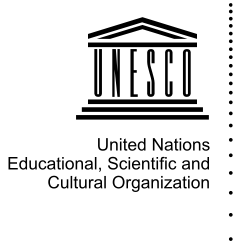MILAN – Turkish coffee culture and tradition have been included in the UNESCO Intangible Cultural Heritage List as part of the eighth session of the Intergovernmental Committee for the Safeguarding of the Intangible Cultural Heritage in Baku.
The Intergovernmental Committee for the Safeguarding of Intangible Heritage, holding its 8th session until 7 December, inscribed 11 elements on the Representative List of the Intangible Cultural Heritage of Humanity.
This marks the end of this year’s inscriptions.
Around 800 delegates from 116 countries took part in the sitting, which included discussions on 38 proposals.
The proposal for including Turkish coffee in the List of Immaterial Cultural Heritage was approved by an overwhelming majority.
Turkish coffee combines special preparation and brewing techniques with a rich communal traditional culture.
The freshly roasted beans are ground to a fine powder; then the ground coffee, cold water and sugar are added to a coffee pot and brewed slowly on a stove to produce the desired foam.
The beverage is served in small cups, accompanied by a glass of water, and is mainly drunk in coffee-houses where people meet to converse, share news and read books.
The tradition itself is a symbol of hospitality, friendship, refinement and entertainment that permeates all walks of life. An invitation for coffee among friends provides an opportunity for intimate talk and the sharing of daily concerns.
Turkish coffee also plays an important role on social occasions such as engagement ceremonies and holidays; its knowledge and rituals are transmitted informally by family members through observation and participation. The grounds left in the empty cup are often used to tell a person’s fortune.
Turkish coffee is regarded as part of Turkish cultural heritage: it is celebrated in literature and songs, and is an indispensable part of ceremonial occasion.
With the decision Decision 8.COM 8.28, the Committee stated that Turkish coffee culture and tradition satisfy the criteria for inscription on the Representative List of the Intangible Cultural Heritage of Humanity for the following reasons:
- Passed on from generation to generation within Turkish families, the knowledge and skills related to the tradition of Turkish coffee provide a sense of identity and continuity, reinforcing social cohesion and openness through hospitality and entertainment;
- Inscription of Turkish coffee culture and tradition on the Representative List could promote greater visibility of the intangible cultural heritage and provide an example of a social institution favouring dialogue;
- On-going and proposed safeguarding measures demonstrate the commitment of the local and national authorities as well as of coffee aficionados and associations to promote Turkish coffee culture;
- Several community members, experts, associations and authorities participated in meetings to prepare the nomination, and community members gave their free, prior, and informed consent;
- Turkish coffee culture was included in 2010 in the Intangible Cultural Heritage National Inventory of Turkey carried out under the authority of the Ministry of Culture and Tourism.
The Chairman of the Turkish National Commission for UNESCO Professor Ocal Oguz stressed that Turkish coffee was more than just a drink, stating that “it is known as lsquo;Turkish coffee’ all around the world not only because of its commodity, but also because of its style, preparation method and traditional presentation.”
The List of Intangible Cultural Heritage is established by UNESCO whose aim is to better protect, safeguard and promote important intangible cultural heritages worldwide to showcase cultural diversity and creative expression.
Photo credits: Turkish Ministry of Culture and Tourism





















